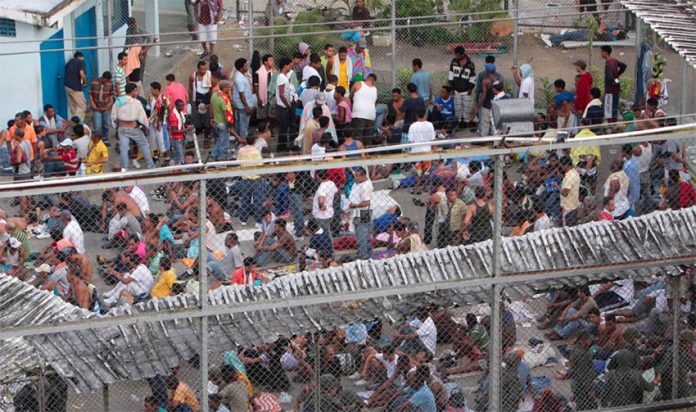Self-government, insufficient personnel, poor hygiene and deficiencies in health services and rehabilitation programs are among the problems in Mexico’s prisons, according to a report by the National Human Rights Commission (CNDH).
CNDH president Luis Raúl González Pérez said that despite legal efforts, corruption and impunity prevail in the Mexican prison system.
“. . . there is an enormous gap between the semantics and the reality,” he said. “The rule of law in Mexico is weak. There is indifference toward compliance with the law, and one of its effects is impunity and the other is corruption.”
The institution’s 2019 assessment of penitentiaries inspected 203 of the country’s 309 prisons, which account for 94% of the total prison population. It included male, female and mixed-gender facilities.
A third of all state facilities were found to operate under self-government or collaborative government with prison authorities.
Insufficient staffing was found in 72% of state prison facilities, and in about two-thirds there were cases of prisoners processing other prisoners along with deficiencies in equipment and hygiene in the living quarters.
The study also found significant deficiencies in the prevention and attention to violent incidents in half of the facilities inspected, and bribery and corruption in 40% of them.
Insufficient personnel were found in 16 of the 17 federal prisons, and many were found to be lacking in health services.
The federal facilities with the poorest ratings in the study were in Durango, Veracruz, Jalisco, Michoacán and México state.
The worst among state prisons were those in Reynosa, Tamaulipas; Huixtla, Chiapas; Zihuatanejo, Guerrero; and Zacatlán and Tecamachalco in Puebla.
Source: Milenio (sp)
